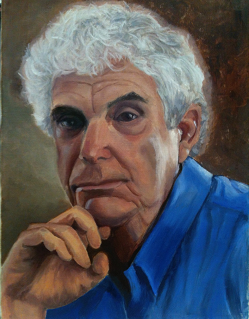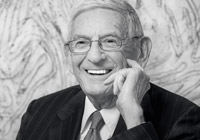Although it lacks the explosiveness of our last presidential campaign, the coming race for governor could change the balance of power in the State Capitol and the state. The Legislature, after playing second fiddle to Gov. Jerry Brown for years, is ready to become a power player, shaping laws that will affect the housing, jobs and transportation of millions of Californians. And the issues that will confront the next governor are complicated and far-reaching: the health of state pensions, the reliability of California’s water, the rates and types of taxation, the balance of power among the state’s political institutions.
The election for governor may seem far off, but it’s well underway. The primary, on June 5, will be held under the state’s “top two” rules where state candidates appear on the ballot without party affiliation. The top two finishers will compete in a runoff on November 6, neither identified by party but in a state strongly controlled by Democrats.
The Democrats leading in very early public opinion polling are Lt. Gov. Gavin Newsom, former mayor of San Francisco; former Los Angeles mayor Antonio Villaraigosa; State Treasurer John Chiang; and Delaine Eastin, former state superintendent of public instruction. The leading Republicans so far are attorney John Cox and Orange County Assemblyman Travis Allen.
The former mayors, Newsom and Villaraigosa, are familiar with California problems from their years of running city halls. Both have confronted politics at its base — debates over potholes, police, unions and balanced budgets. Also, Villaraigosa was speaker for two years when he was an assemblyman, a position in which he earned high marks as a dealmaker. Newsom, as an incumbent, holds an advantage as a fundraiser. Chiang, who was state controller and a Board of Equalization member before being elected treasurer, will have to show he has the equivalent of his rivals’ hands-on experience, but he has demonstrated early strength among donors. Eastin, a former Assembly member who was state superintendent of public instruction from 1995 to 2003, has credentials in education that may position her well among voters concerned about schools.
For the Republican candidates, the election is a long shot, given the state’s overwhelming Democratic registration lead. Democrats outnumber Republicans by almost 2-1 and another quarter say they have no party preference. Attorney Cox lost elections in his native Illinois before moving to California. Assemblyman Allen is banking on campaigning against the gas tax increase passed by the Legislature and signed by the governor. Both Cox and Allen and other Republicans who may run, are hoping that all Republicans and enough Democrats and those who declined to state their affiliation will vote for them and move them into the top two in the primary.
In fact, none of the candidates can match the fame and popularity of Gov. Brown, who is completing his fourth and final term, making him the longest-serving governor in California history. Lacking that stature, those who are vying to succeed him are getting acquainted with the voters, visiting communities large and small and campaigning on the Internet. All seem to be trying to be likable and inoffensive.
The new governor will take office in a time of great change, starting with the departure of Brown, who has been in California public service since the 1970s. The second change is also important, although it is comparatively unnoticed by the news media or the public.
This involves the composition of the Legislature. The restrictive term limits approved by the voters in 1990 have ended. Instead of allowing only six years in the Assembly and eight years in the Senate, the law was changed in 2012 to permit lawmakers to serve 12 years in a single house. Rather than moving on after six years, an Assembly member, for example, can remain for 12, building up expertise on a subject.
Professor Thad Kausser, a UC San Diego political scientist, said he thinks the term limit extension “will lead to an equalization of power between the two branches. In the last decades the balance has shifted to the executive branch.”
Many complex problems will face the new governor and the Legislature.
Out-of-control housing prices are making much of California inhospitable or unattainable for the shrinking middle class. Moreover, high housing costs are contributing to homelessness, some of it caused when rent increases force the poor out of apartments. In addition, Gov. Brown has pressed forward with an ambitious plan to reroute water from the Sacramento River into the State Water Project, a proposal with vital support in Silicon Valley and Southern California but with pockets of influential skeptics. Public employee pensions quietly haunt the state budget, and some of Brown’s adversaries are attempting to roll back his gas tax, which is earmarked for highway and road improvements. Those are just some of a long list of troubling, complex issues.
“They (Californians) are looking at their state legislators and governor to solve their everyday problems,” said Gale R. Kaufman, a veteran Sacramento campaign consultant whose clients range from the teachers union to the campaign to legalize marijuana. “All the polling shows affordable housing is No. 1 or 2” (on lists of voter concerns).
Political consultant Bill Carrick saw this when he conducted focus groups for his successful campaign against Los Angeles Measure M, which would have limited development and housing construction. “The middle class and lower class … their lives are so attached to getting back and forth to work … they saw everything through that economic prism.”
What’s crucial, given the shifting of power in the Capitol, is what the winner does after the election. Can he or she negotiate with an empowered Legislature? Can lawmakers, freed somewhat from the restrictions of term limits, come up with imaginative solutions to the everyday but all-important problems of their constituents? If they can, the election of 2018 may be one to remember.























